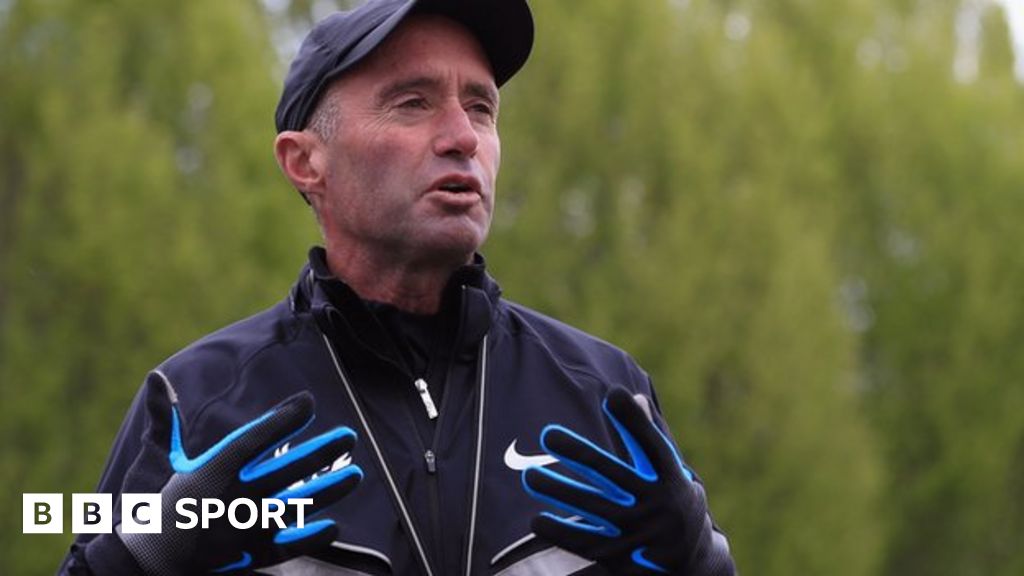But that bubble soon burst.
In February 2017, the Russian hackers Fancy Bears popped up with a series of devastating sports leaks. Among them, a secret IAAF list of athletes who were “likely doping” was published. It included Farah and Rupp. The pair were among 50 athletes secretly flagged by the Athlete Biological Passport, and subsequently cleared as “normal”. Neither has ever tested positive.
Then, a 269-page interim Usada report of its NOP investigation was passed to the Sunday Times by the Russian hackers.
The report painted a damning picture of a culture of coercion and secrecy at NOP and accused Salazar and Dr Brown of cheating and being cavalier with the health of athletes including Farah.
It said Salazar and Dr Brown “almost certainly” broke anti-doping rules over the infusion of L-carnitine. The report accused the pair of obstructing Usada’s investigation by altering some medical records and refusing to hand over others. Infusion guinea pig Magness noticed, when he read the leaked report, that his medical notes had been changed. NOP athlete Dathan Ritzenhein’s notes had also been altered; a notation indicating his infusion was just below the allowable limit had apparently been added.
Usada learned Farah had had an infusion in the UK. UKA would later tell an inquiry this was within the legal limits, even though it hadn’t been recorded properly. Farah has always strongly denied breaking any rules.
The report also reveals Salazar eventually agreed to be interviewed under oath by Usada investigators, who, after delving into his own testosterone use, concluded he had failed to provide adequate justification for possession of the drug, constituting a doping violation. The report, while strongly hinting Salazar may have started using the drug before he finished his running career, also suggests he may have used it on Rupp during massage treatments. Rupp has always strongly denied breaking any rules.
The publication of this top-secret report was obviously not what Usada wanted – but it seems to have forced its hand for it can now be revealed both Salazar and Dr Brown were noticed of charges in March and June 2017 respectively and both formally charged in June of that year with anti-doping violations. The charges related to the claims about testosterone, the L-carnitine infusions, and tampering with evidence to thwart doping investigators.
Neither Magness nor any of the other NOP athletes were charged.
It is understood that despite 10 NOP athletes agreeing Dr Brown could discuss their medical records with Usada, he steadfastly refused to do so.
Salazar and Dr Brown, armed with heavyweight legal teams funded by Nike, contested the charges. This meant the cases had to go the American Arbitration Association (AAA).
This was a hugely complex case, and one which did not have a slam-dunk positive drugs test to stand upon.
But Tygart’s team specialise in these rare, non-analytical positive cases (Armstrong being the case in point) and believed there was enough evidence to justify a lifetime ban for the coach. All of this was being done behind closed doors to protect both the innocent until proven guilty, and also the integrity of the cases. Once again, people started to think it all had gone away.
Shortly after charges were laid in 2017, stories started appearing in the UK press that Farah was seeking to distance himself from Salazar. He announced he was leaving the American in October that year, but not, he insisted, because of the doping allegations.
He said: “If I was going to leave because of that I would have done. If Alberto had crossed the line I would be out the door, but Usada has not charged him with anything.”
Only, it had. Farah insists he was not aware of this. Olympic champion Centrowitz soon followed him out of the NOP door.
Then, once more, all was quiet. In reality, it was anything but.
Hearings, like mini court cases, were held for each case in May and June 2018, during which witnesses, including Magness and Goucher, were grilled by both sides. Dr Brown was eventually compelled by the arbitrators to give testimony under oath. The AAA panel, consisting of three judges with experience at the Court of Arbitration for Sport, then retired to consider their verdict.



